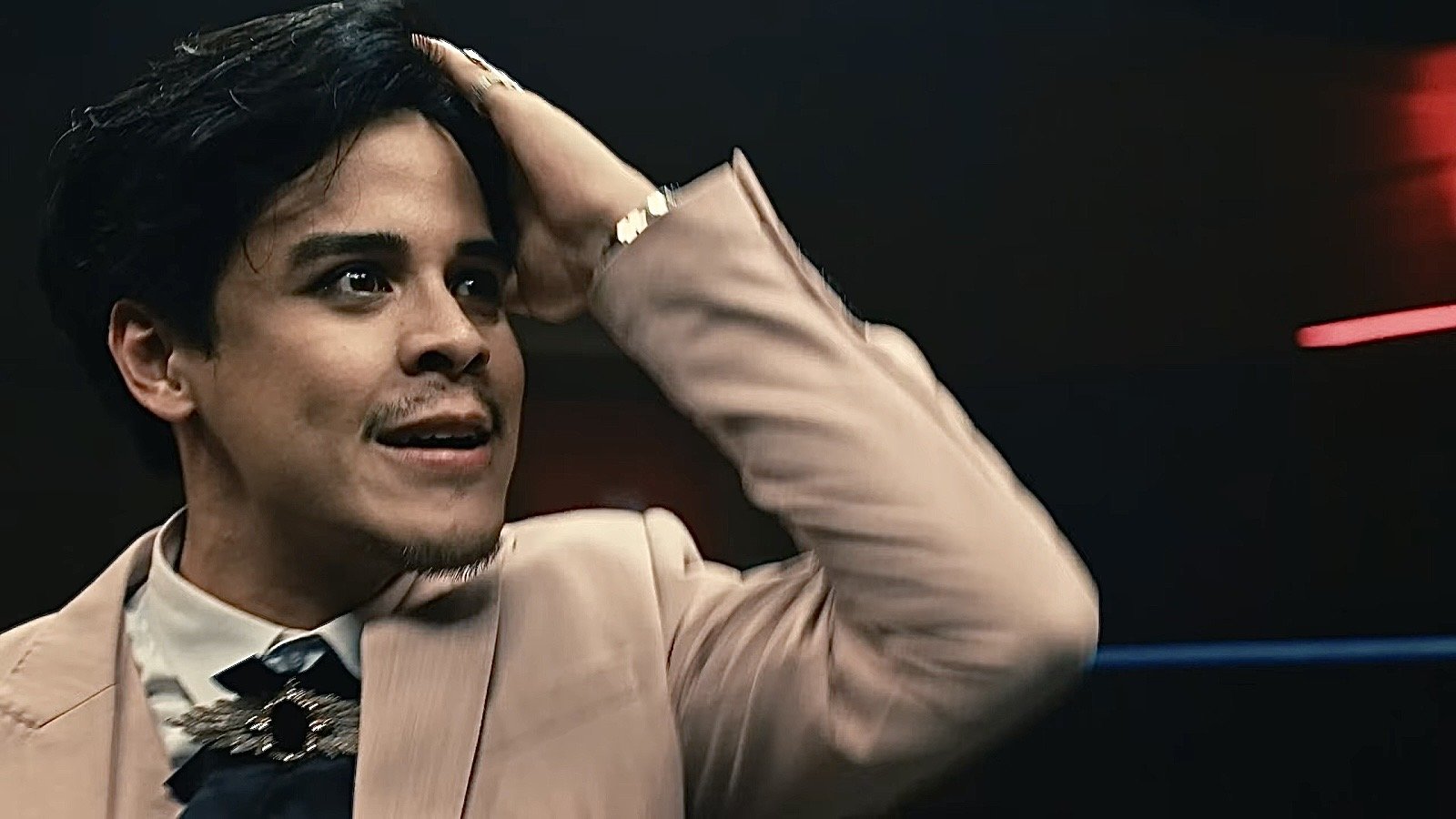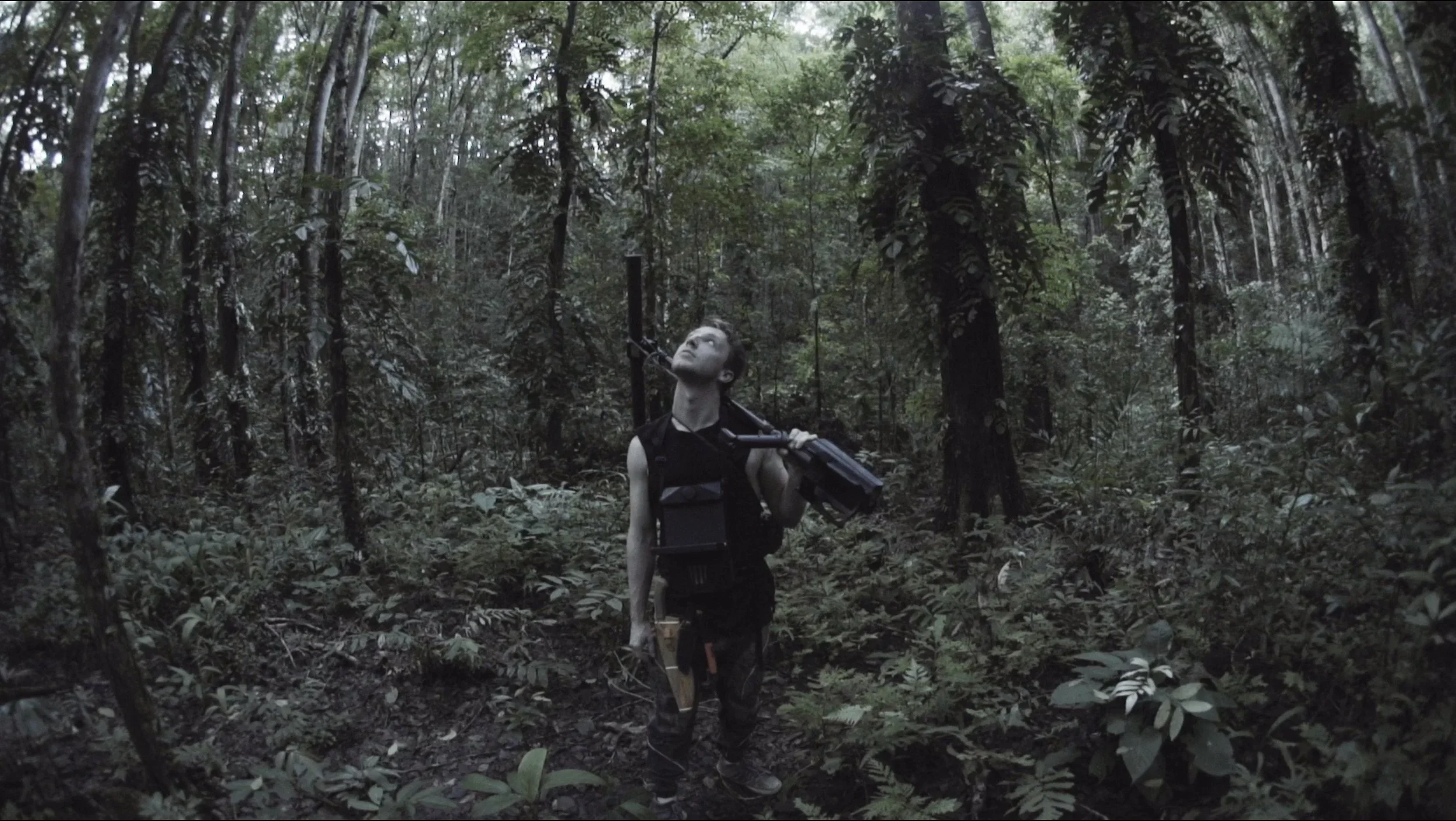‘Fuchsia Libre’ REVIEW: Sometimes, Genres Mix Like Water and Oil
‘Fuchsia Libre’ REVIEW: Sometimes, Genres Mix Like Water and Oil
Fuchsia Libre is declared a victor after a match | Image taken from the Official Trailer on YouTube
Whenever a press junket or a red carpet premiere is held to promote a movie, you can always bet on some of the cast members to say something to the audience in the vein of, “You should see this film because it has everything. It has drama, action, comedy, romance, horror, etc. It’s great!” Most of the time, it’s just something actors say when they get asked to promote their movie for the thousandth time.
But sometimes, it’s a symptom of a film’s weakness. An insinuation that it’s going to do so much that the audience is bound to find something to like in it, no matter how horrendous it’s going to be. Therefore, when John Arcilla said his own “It has everything” spiel during this film’s red carpet premiere, I tempered my own expectations that were hyped up by the feature’s banger of a poster.
And it did have everything. It is a father-and-son melodrama, a wrestling picture about an underdog, a violent crime thriller, a Vice Ganda-coded comedy, and an action flick all rolled up into one movie. But in Fuchsia Libre’s pursuit of telling a supposedly simple tale of wrestling and reconciliations, it wraps up in disparate styles and inconsistent tones, giving birth to a genre-hybrid abomination that is utterly confused on what it intends to accomplish.
Paolo Contis as Oliver/Keon | Image taken from the Official Trailer on YouTube
RC Delos Reyes’ Fuchsia Libre started off rather straightforward, with a bit of family drama of telenovela quality. Paolo Contis plays a closeted gay man named Oliver who, after being caught in the act of kissing his boyfriend, faces disapproval from John Arcilla’s Danilo, his macho father who works as a cop, leading to a strenuous and distant relationship between the two.
A decade later, Oliver, now calling himself Keon, comes to own a fitness gym and becomes a fitness trainer. When the gym goes under the threat of foreclosure, Keon, with Fuchsia Libre as his moniker, reluctantly joins an underground fighting ring called Gallera, where he learns that his father is one of the patrons. This discovery transforms his motivation from winning to earn enough money to buy off his gym to impressing his father to gain acceptance.
Such a simple premise, though, would be plagued with complications stemming from the bizarre direction of Delos Reyes, who seems unsure on the kind of story he is trying to tell. These hiccups would become apparent once we are introduced to Danilo’s investigation into the activities of Khalil Ramos’ character named Patron, the sadistic crime boss running the fighting ring. Patron’s introduction creates a crossroad that opens up vastly different paths that the film can take. The problem is that it attempts to walk all roads without a consistent tone to emulsify the genres it’s trying to mix.
John Arcilla as Danilo | Image taken from the Official Trailer on YouTube
Danilo’s subplot is essentially a hard-boiled crime thriller bursting with blood and violence. In one scene that demonstrates how dark the Fuchsia Libre is willing to go, we see a Patron in his most maniacal and sadistic, flaying the skin off the face of a wrestler who disobeyed him as the camera lingers on the blood splatters on his face. In another, we see him at point-blank, painting the floor with the blood and brains of a henchman.
Juxtaposed with the melodrama of Keon or the dynamism and flamboyance of the poorly-choreographed wrestling fights, these scenes stick out like a sore thumb, making it feel like you’re watching three different movies all at once. Nothing feels more jarring than jumping from corny jokes and overdramatic trauma dumps and straight into wanton murder.
The failure in the attempt to mix genres permeates even through the direction of performances, despite the efforts of the cast. Paolo Contis’ turn as Oliver/Keon had all the nuances of a straight guy pretending to be gay. Overwrought with saccharinity befitting a soapy telenovela, he struggles to coalesce with the film’s darker side.
On the other hand, the talented John Arcilla is wasted as Danilo. The direction to make the character too self-serious through the supposed dark comedy traps him inside a joyless box surrounded by oversentimentality and the hammy energy that Patron, with whom he shares much of his screen time, radiates.
Khalil Ramos as Patron | Image taken from the Official Trailer on YouTube
As for Khalil Ramos’ Patron, he is just in a different movie altogether. Khalil imbues the character with such extreme amounts of unhinge and coked-up energy that the interpretation starts to take on a more animated life that borders on laughably cartoonish.
Like a Joker impression with the exuberance and theatricality but without the make-up or the sinister aura. Ramos is a clear standout when seen in isolation; however, the performance feels disconnected to the feature’s other moving parts when we step back and look at the whole picture.
There was an admirable attempt, but unfortunately, Fuchsia Libre just doesn’t have the grit to mix an ambitious cocktail of genres to go with its simple premise. It’s a definitive case of too many ingredients spoiling the broth. And how does the broth taste? Well, it’s rather awful. So, eat at your own risk.
Fuchsia Libre opened May 15 in cinemas nationwide.

















